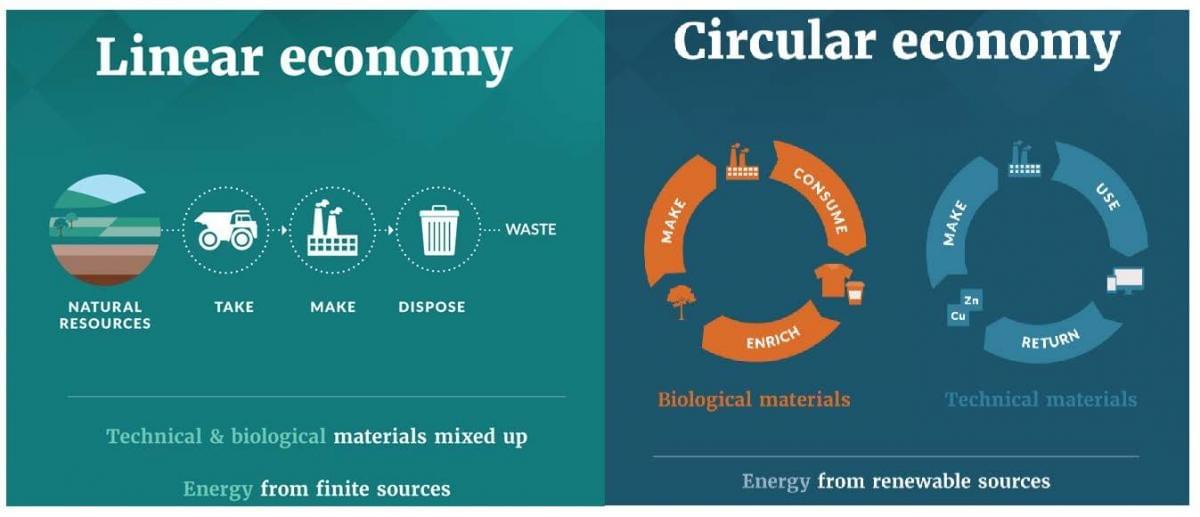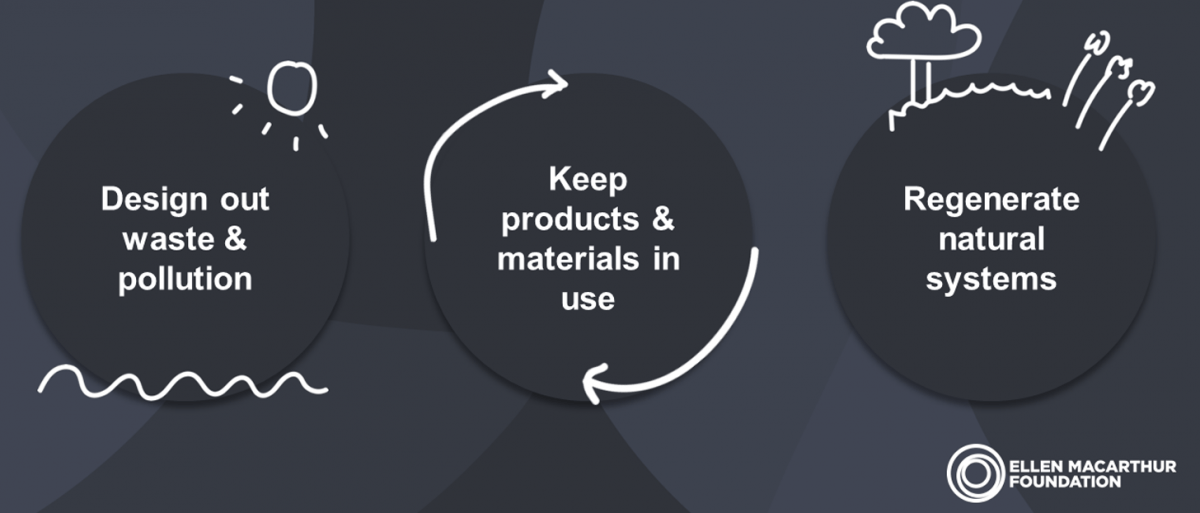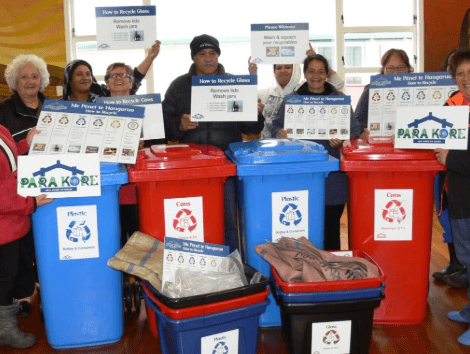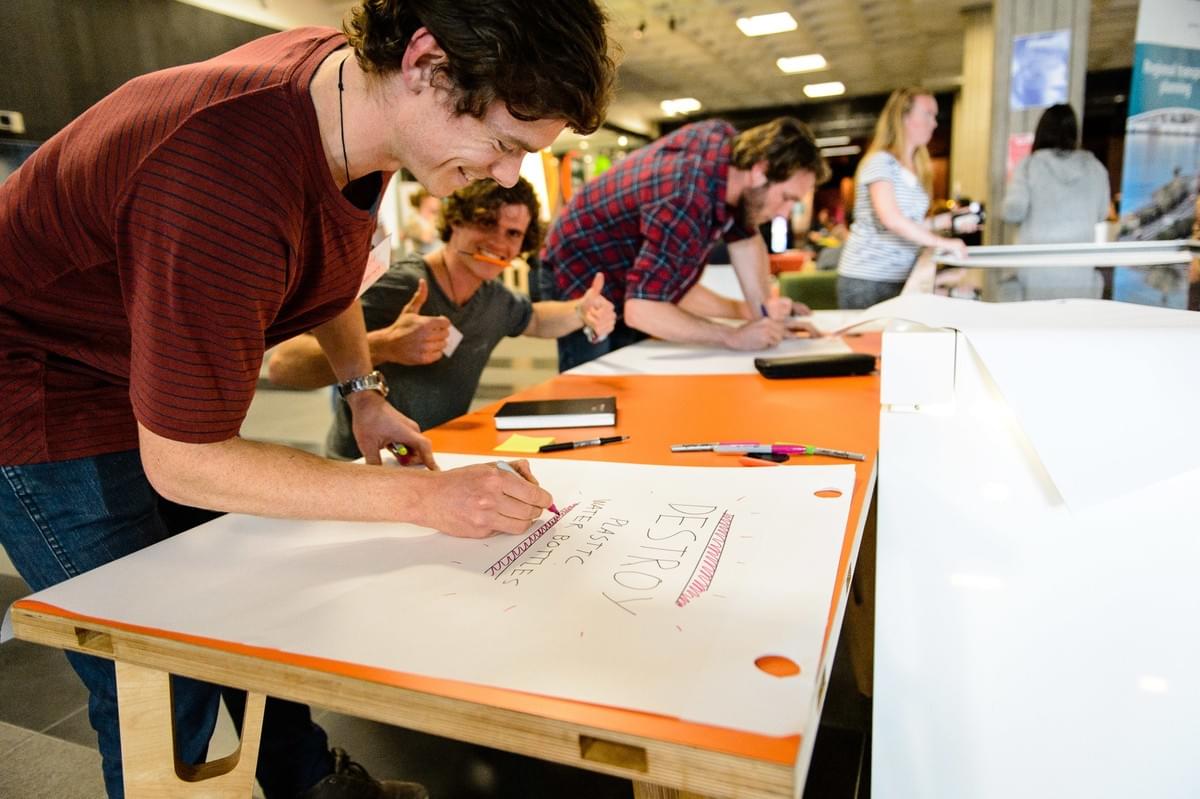There Is A Better Alternative To 'Take, Make and Dispose'
There Is A Better Alternative To 'Take, Make and Dispose'
Moving towards a waste free future with a circular economy
Moving towards a waste free future with a circular economy
James Walker is the Deputy Secretary for Partnerships and Customers at Ministry for the Environment. In this blog he'll be outlining New Zealand's waste problem and the changes we can make together to overcome this waste challenge.

Our waste problem
New Zealand has a waste problem and we need to make some big changes now for the future of our environment. As a country we are one of the highest producers of urban waste in the developed world, with each of us sending around 730kg to landfill per year. We need to stop using resources once and throwing them away, it’s not doing our environment any favours and it doesn’t make sense for our economy either.
We are currently in a linear economy where we take resources from nature to make things, use them for a short time, before disposing of them to landfill.
Our planet is suffocating with waste, and we are adding to greenhouse gas emissions through production processes, inefficient use of resources and landfills. Being Linear doesn’t just cost our environment but also our pockets, as extracting resources from the earth has a significant financial cost.
The circular economy opportunity

Instead, there is an opportunity to join other countries in transitioning to a circular economy. One where businesses design products from the outset so that they are designed to last, or the materials can be easily reused or returned to nature. We have some innovators here in New Zealand already doing this. Ethique started in a kiwi kitchen (and is now an international beauty brand), with the intention to reduce the amount of bathroom plastic ending up in our landfills. The solution was to design body products into bars that are made of naturally derived ingredients. They even made the packaging compostable.
Creating a circular economy isn’t just about product design. It’s also about how products are manufactured, packaged, distributed and processed at the end of their life-cycle. To ensure a true circular economy, every part of the process will need to be run on renewable energy such as wind, solar and hydro. Many organisations are already making changes now, such as New Zealand Post with their E-vans delivering parcels.
We also need to apply circular economy thinking to biological materials, making sure all materials are reused or returned to nature. EcoStock diverts 30,000 tonnes a year of industrial food waste from being land-filled and instead keeps it in the food chain. They collect more than 10 truckloads of food waste a day and turn it into high grade food for animals.
Transitioning to a circular economy isn’t going to happen overnight. It will take time, creative ideas and innovation. We need to think out of the box like kiwi brewery Garage Project; they wanted to do something with their spent mash (the main waste of the brewing process), so they created Mashbone Dog Treats. By mixing their spent mash with New Zealand grass-fed beef, they created a high protein organic dog treat.
What we can all do to move towards a circular economy

To move towards a circular economy we also need to build more onshore processing capability for recycling and resource recovery. Flights Plastic creates recycled PET plastic food containers here in New Zealand and their food containers can be found in local supermarkets. They are not only creating a reusable product but also saving on transport emissions by recycling plastic right here in New Zealand.
We all have a role in this and organisations need to take responsibility for the environmental impacts of their products and services, from the materials they source right through to how they are disposed of and everything between. Recently 14 local and multi-national companies signed up to the New Zealand Plastic Packaging Declaration, committing to use 100 per cent reusable, recyclable or composting packaging in their New Zealand operations by 2025 or earlier. This is a great start.
Individuals can have an impact too. A recent survey found that 50 percent of New Zealanders said they were either very or extremely worried about the impacts of waste. We can each create change now by using reusable items such as keep cups, drink bottles and shopping bags, making choices to compost at home, fixing products and buying products made to last. We can also choose to buy items made of recycled materials and say not to unnecessary single-use plastics such as straws. There are more ideas on how you can reduce your waste at mfe.govt.nz.
Individual changes will be backed by the Government’s recently announced waste work programme supporting New Zealand’s transition a circular economy. This includes expanding the Waste Disposal Levy to more landfills, improving our nationwide waste and resource recovery data, investing the Waste Minimisation Fund in systems, infrastructure and product innovation that will take us closer to a circular economy, introducing mandatory product stewardship schemes for problematic waste streams such as vehicle tyres, lithium-ion batteries, agrichemicals and refrigerants, and creating an overall strategy for New Zealand’s transition to a circular economy starting with road-maps for key sectors.
Innovation is key to our journey, so I am excited to see what the teams can come up with at this year’s Climathon and how their ideas can help New Zealand get one step closer to a circular economy.
The Ministry for the Environment is pleased to support this year’s Climathon. We are sponsoring two prizes to help teams take their ideas to the next level.
Do you have ideas or skills that could contribute to developing a sustainable food network in Wellington?

Climathon Wellington is a 24 hour challenge happening on the 26th and 27th of October. In it's 4th year it brings together people from different industries to create and test ideas to solve Wellingtons greatest challenges in a highly supportive environment.
If you are someone who enjoys complex challenges, has ideas or wants to contribute your skills, come to Climathon Wellington.
Co-hosted by Wellington City Council and Victoria University of Wellington, there is a limited number of free passes now available.
Almost done…
We just sent you an email. Please click the link in the email to confirm your subscription!
OKSubscriptions powered by Strikingly